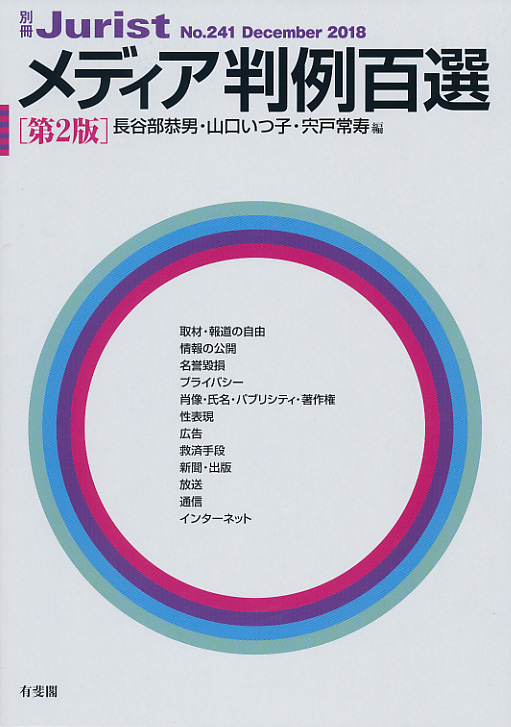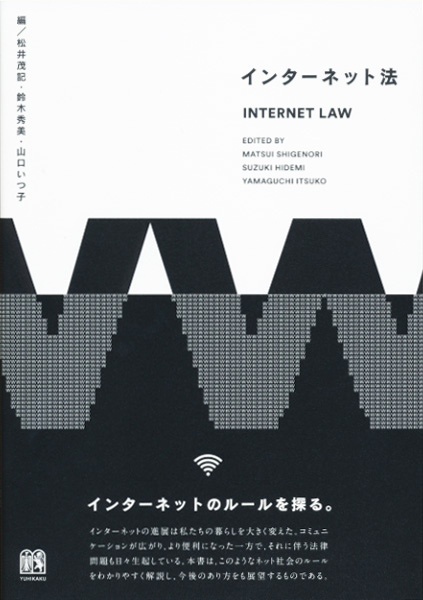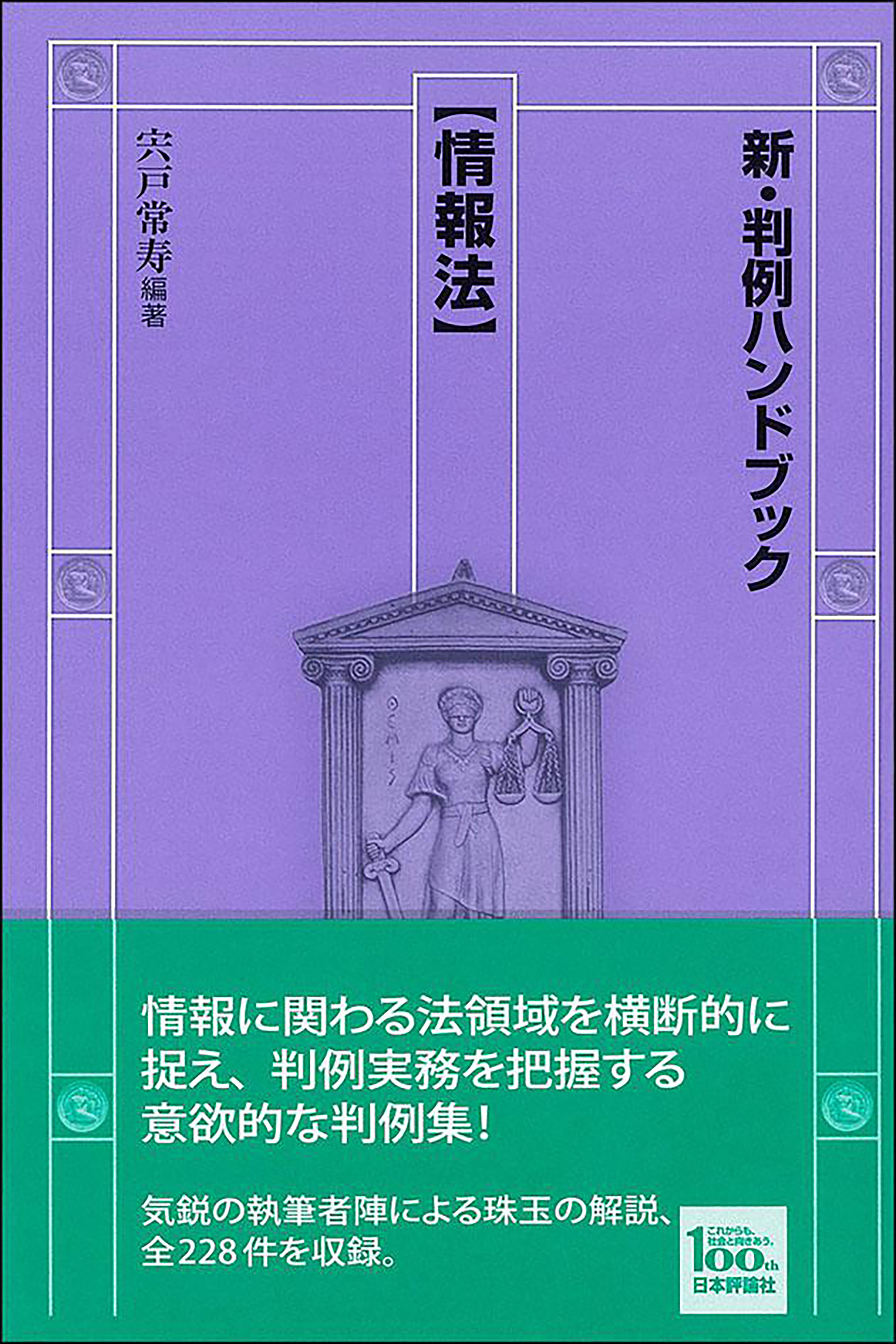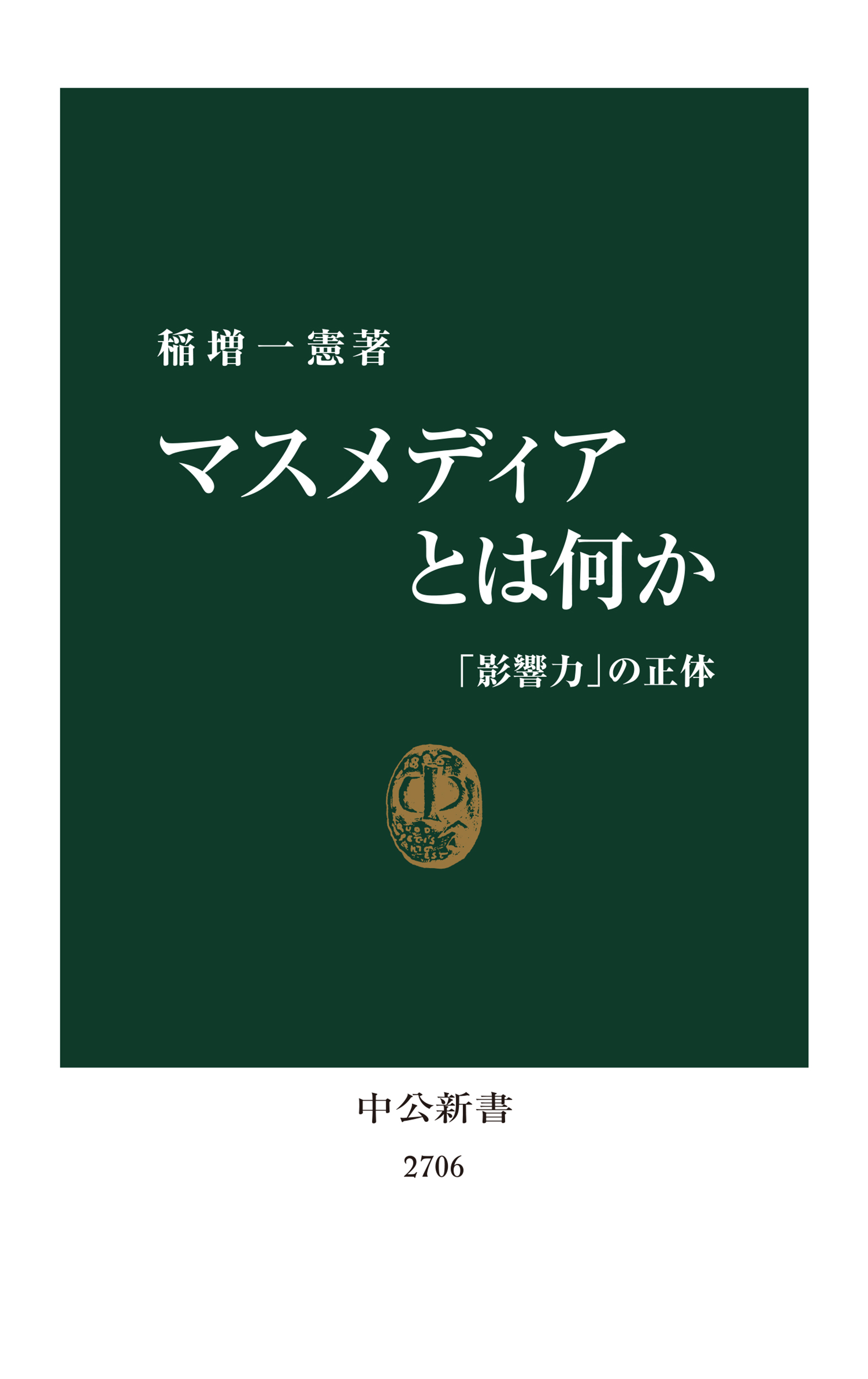
Title
Bessatsu Jurist No.241 Media Hanrei Hyakusen (Leading Cases in Media Law, 2nd Ed.)
Size
264 pages, B5 format, softcover
Language
Japanese
Released
December, 2018
ISBN
978-4-641-11541-5
Published by
Yuhikaku Publishing Co., Ltd.
Book Info
See Book Availability at Library
Japanese Page
Studying law in the field of media, information, and communications can be a daunting endeavour. It is necessary to tackle complex, wide-ranging legal issues triggered by ever-changing technology. The basic mission of this book is to clarify current law and its practical applications in this field, in a way that can be easily understood by undergraduate students.
This book is a recent publication in a case book series, called “Hanrei Hyakusen” [100 Selected Cases]. Unlike the voluminous case books usually used in law schools in the United States, case books tend to be supplemental materials to law textbooks in Japan. This might reflect the historical background of the modern legal system in Japan, which has often been classified as a civil law country rather than a common law country from a comparative law perspective. The Hanrei Hyakusen case book series is well-known for the superb quality of its concise commentaries by distinguished legal scholars and practitioners. This fully revised, second edition of “Media Hanrei Hyakusen” [Leading Cases in Media Law] contains such commentaries on 124 cases.
The origin of this “Media” Hanrei Hyakusen dates back to 1971, when the very first edition was published under the title of “Mass Communication” Hanrei Hyakusen. At that time, mass media such as print media and broadcasting media played a dominant role in the so-called “marketplace of ideas” and serving the people’s “right to know”. Since then, the media landscape has dramatically changed, especially with the advent of the Internet and online communications, and the case book series title was changed to the current one in 2005.
The latest edition of this book covers various issues which crosscut traditional legal fields of public law and private law, including but not limited to the freedoms of news-gathering and reporting, disclosure of information, defamation, privacy, and copyrights. This edition also highlights the general trends on how the difference in characteristics of specific media such as newspapers, broadcasting, and the Internet might affect the conclusion and reasoning of court rulings.
For example, when people seek legal advice on how to deal with online defamatory postings on social media platforms whose service providers are located outside Japan, there is no quick and easy answer under current Japanese law. Nevertheless, understanding current civil and criminal defamation law, whose elaborated definitions and criteria have been gradually developed mainly in the context of conventional mass media under the post-World War II Constitution of Japan, would provide useful guidance on how law can and should be applied in the context of newly emerging media technology.
Indeed, studying law is sometimes said to be like mastering a foreign language. Terms and concepts must not only be memorized but also understood if they are to be used in a proper context. It takes time to make such a learning process enjoyable. This book would contextualize the reader’s understanding of media law and its practical applications in a way that strikes a fair balance between competing values in hard cases. I hope you will join us in enjoying such challenging yet rewarding endeavours.
(Written by YAMAGUCHI Itsuko, Professor, Interfaculty Initiative in Information Studies / 2020)



 Find a book
Find a book


 eBook
eBook

